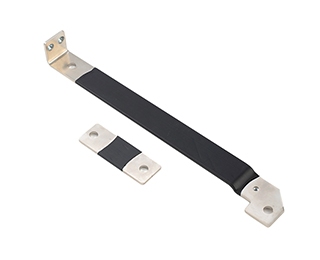2024-12-03 18:39:51
Industrial automation has revolutionized modern manufacturing, improving efficiency, precision, and safety across various sectors, from automotive to consumer electronics. At the heart of these automation systems lies a critical component that ensures the smooth transmission of electrical power: the busbar. Busbars are essential for distributing electrical power within industrial automation systems, and the choice of material can significantly impact system performance, durability, and reliability.

Among the most popular options are Nickel Foil Copper Busbars and Solid Copper Busbars, both of which offer distinct advantages depending on the application requirements. In this article, we will explore how Nickel Foil Copper Busbars are used in industrial automation, with particular focus on control panels, machinery, and power distribution networks. We will also compare them with Solid Copper BusBars, highlighting their unique benefits and applications.
What Are Nickel Foil Copper BusBars?
Nickel Foil Copper BusBars are conductive bars made from copper, which is then coated with a layer of nickel. This combination leverages the excellent electrical conductivity of copper while enhancing the durability and corrosion resistance of the component through the nickel coating. Nickel’s added benefits include increased resistance to oxidation, wear, and harsh environmental factors, making Nickel Foil Copper BusBars an ideal choice for applications that require both performance and longevity.
On the other hand, Solid Copper BusBars are made purely from copper without the protective nickel coating. They are known for their excellent conductivity and are commonly used in less demanding environments where corrosion resistance isn’t as critical.
Use of Nickel Foil Copper BusBars in Control Panels
Control panels serve as the central hubs for regulating and distributing electrical power to machinery in industrial automation systems. These panels must reliably handle high currents and manage multiple power sources to ensure smooth operation. Nickel Foil Copper BusBars are widely used in control panels due to their ability to conduct electricity efficiently while providing additional protection against corrosion and wear.
1.Corrosion Resistance: In control panels, Nickel Foil Copper BusBars help extend the life of the system by preventing corrosion, especially in environments with humidity, chemicals, or fluctuating temperatures.
2.Reliable Power Distribution: The nickel coating helps maintain consistent electrical performance, reducing the risk of power surges or failures due to material degradation.
3.Space Efficiency: Nickel Foil Copper BusBars are designed to be compact and easy to integrate into control panel layouts, making them suitable for crowded, high-density environments.
In contrast, Solid Copper BusBars are often used in control panels that operate in less demanding environments where the additional protective properties of nickel are not required. However, their susceptibility to corrosion may be a disadvantage in more challenging conditions.
Role in Machinery and Equipment
Industrial automation systems rely on machinery and equipment that must operate efficiently over long periods. Nickel Foil Copper BusBars play a critical role in powering these machines and ensuring that they operate smoothly.
1.Precision and Stability: Machines such as robotic arms, conveyors, and CNC machines require stable and precise power sources to function correctly. Nickel Foil Copper BusBars provide the necessary conductivity while maintaining stability even in high-load situations.
2.Durability: Nickel’s resistance to environmental wear and corrosion means that Nickel Foil Copper BusBars are perfect for machinery that operates in dusty, high-temperature, or corrosive environments. This extends the operational life of machinery, reducing the need for frequent repairs or replacements.
3.Temperature Resistance: With the added nickel coating, these busbars can withstand the higher temperatures often encountered in industrial automation machinery, ensuring that power distribution remains stable even in hot environments.
For equipment operating in environments where high conductivity is the only key requirement, Solid Copper BusBars may suffice. They offer excellent performance for low to moderate temperature and humidity conditions but are not as resilient to extreme operational environments.
Power Distribution Networks in Factories and Plants
In large-scale industrial facilities, power distribution networks must be able to handle the complex energy requirements of various production lines, machinery, and control systems. Nickel Foil Copper BusBars are often used in these networks for their superior performance and extended service life, especially in high-demand environments.
1.High Conductivity with Durability: Nickel Foil Copper BusBars offer superior conductivity compared to many other materials, ensuring that large amounts of electrical current can be transmitted through the system with minimal loss. The nickel coating protects these busbars from corrosion and degradation, even in highly humid or polluted environments, which is essential for ensuring the reliability of power distribution in factories and plants.
2.Safety and Efficiency: Power distribution systems are designed to provide power safely and efficiently to every corner of a plant. Nickel Foil Copper BusBars reduce the risks of overheating or electrical faults, contributing to a safer working environment and enhancing energy efficiency.
3.Long-Term Reliability: The robust construction of Nickel Foil Copper BusBars ensures that they will perform consistently for years without degradation. In a factory setting, where system downtime can be costly, the durability of Nickel Foil Copper BusBars is invaluable.
For plants with less demanding power distribution needs, Solid Copper BusBars may be used. While they offer excellent conductivity, they require more maintenance in harsh environments due to their lack of corrosion resistance.